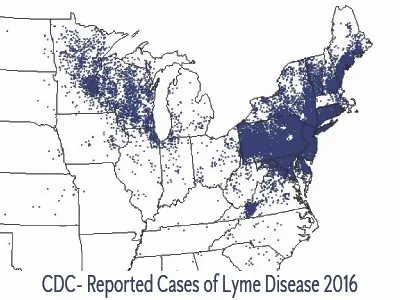A property manager demonstrates a vastly understated versatility, unlike other individuals employed in residential or commercial real estate. Your primary responsibility is to the owner or agency of your employment. The second, to the occupants of your properties. Successful property managers build strong relationships between tenants and landlords and understand that these relationships are crucial in forming the expectations of both parties to the lease. Since both parties will seek and expect certain rights and benefits out of the agreement, a wide range of management responsibilities are critical to your performance on and off the job.

The job description for a property manager these days is beginning to look a lot like an umbrella policy—it includes anything and everything. In your world the only constant you can count on is change. Your varied day-to-day responsibilities are demanding and challenging. In-depth knowledge of budget planning, landlord-tenant law, state ordinances and taxes, as well as repairs, maintenance schedules, employees and renters keep you continually on your toes. The list goes on and on.
As a property manager you take the challenges of your job head on, with the adaptability and drive like no other type of manager. When a renter doesn’t pay, it’s off to small claims court. When property is damaged, a detailed itemization of repairs must be presented to the renter and maintenance must resolve issues before the property can be rented again. When an employee gets sick another employee must be scheduled to take his or her place, oftentimes at the last minute. And when pests invade your properties they can present a wide range of issues and threaten the health and well-being of your tenants and colleagues.
Let’s explore two pests and the potential impact they have on your operations.
When it comes to pest-related health threats, mosquitoes and ticks are on the top of the list. Each has the potential to infect humans with extremely dangerous pathogens. It’s because of this inherent risk that mosquitoes and ticks continue to make headlines across the country.
Blacklegged (deer) ticks are the number one vector of Lyme disease in both humans and pets. The prevalence of these ticks in urban and peri-urban areas in Washington D.C., Maryland and Virginia is on the rise. This—combined with an increase in incidence rates of diagnosed Lyme disease cases—remains a troubling concern among area health officials. Although the risk of fatality from Lyme disease is understudied, statistics surrounding the disease illustrate an outcry of debilitating and lifelong health complications.
Babesiosis, also spread by infected blacklegged (deer) ticks, is caused by microscopic parasites that infect red blood cells. Babesia infection can range in severity from asymptomatic to life threatening. The risk of contracting one of many tickborne viruses is at its greatest during the months that ticks are most active: June through August.
What About Mosquitoes?
Mosquitoes are known vectors for West Nile virus, dengue fever, malaria, yellow fever, chikungunya virus, and several forms of encephalitis. In recent years, Zika virus has made its way to the U.S., and it presents a serious threat to unborn children at all stages of development.
While awareness of mosquito and tick illness erupts in our community forums, on social media, and in the news, more and more people are becoming increasingly concerned. According to the Centers for Disease Control and Prevention (CDC), more than 640,000 cases of mosquito and tick diseases were reported to health care professionals and nine new pathogens spread by tick and mosquito bites were discovered or introduced to the U.S. between 2004 and 2016.
Property managers and owners are also becoming increasingly aware of the legitimate risk and liability presented when mosquitoes and ticks invade the green spaces used by your tenants. So, what can you do? Follow these 5 tips that every property manager should know:
Mosquito And Tick Management Tips For Property Managers And Owners
1. Moisture Control
Mosquitoes and ticks are moisture-thriving pests. They need high humidity and moisture to survive. When you control moisture on your property, you reduce the incidence of breeding in existing populations as well as aid in prevention. Here are a few moisture control measures you can introduce to your properties.
- Trim trees and bushes to allow the sunlight to dry rainwater in shaded locations.
- Repair any damaged or leaking water spouts and hoses.
- Have maintenance routinely check gutters and downspouts to makes sure rainwater is being channeled away from foundation walls.
- Loosen areas of compacted dirt that allow rainwater to sit.
2. Attractants and Repellants
Understanding how to eliminate or modify the environment conducive to mosquitoes and ticks is your first defense in prevention.
- Female mosquitoes require a bloodmeal to reproduce. However, they also need sugar (in the form of nectar from flowering plants and trees) for survival. Replace flowering ornamentals with plants that naturally repel mosquitoes, such as lavender, sage, eucalyptus, and pyrethrum.
- Create space between the plants in your landscaping to allow sunlight to penetrate and dry the surrounding soil. Mosquitoes and ticks love shady environments and by increasing airflow and reducing moisture you can make your landscaping less inviting to rodents and other animals that bring ticks near your foundation walls.
- An important factor in controlling both mosquitoes and ticks is to inhibit an animal’s ability to pass through or live within your property grounds. Rodents and wildlife carry ticks onto your property; everything you do to discourage them will reduce tick populations. Keep lawns maintained. Keep trash in sealed containers. Create a one-foot “dry” barrier around your foundation perimeter with stone or gravel. Remove any lawn clutter that animals use as harborage. Fence off perimeters that back to wooded areas.
- Birds also bring ticks within your property boundaries. Proper bird management is a key component to tick management.
- If you use electronic “bug zappers” to deal with pests, consider retiring them. While they are somewhat effective at luring mosquitoes onto your property, they don’t necessarily attract and kill mosquitoes that bite or carry diseases.
3. Breeding Sites
When mosquitoes are unable to breed, mosquito populations around your property will be limited. Ticks generally breed on their host animal, so this tip is targeted at mosquitoes alone.
- Only give your landscaping the water it needs. Excess watering can create vernal pools that mosquitoes can use as breeding sites.
- Any object on your property that can act as a container for rainwater should be removed or modified to reduce collection. This includes toys, playgrounds, clogged gutters and more.
- If an object can’t be removed or modified, a slanted tarp may be put over it to allow rainwater to channel to the ground and soak in. If the water begins to puddle, consider angling the tarp in another direction.
- Clogged gutters can be a breeding site. It only takes a bottle cap of water to give mosquitoes a suitable breeding site.
- If you have a pond, bird bath, or some other immovable standing water resource, an application of larvicide should be regularly applied by a pest professional.
4. Exclusion
There isn’t a whole lot you can do to exclude mosquitoes from visiting your property, but you can have an impact on tick development by honing in on the wildlife that support them.
- Fences can have a big impact on wildlife. They can be used to keep wild animals out and also protect food sources that might attract them.
- While ticks prefer to hitch a ride on an animal, they can crawl onto your property. Install a barrier of crushed stone or wood chips around the exterior of your property to prevent ticks from entering into outdoor recreational areas.
5. Professional Pest Management
It is always best to partner with a trusted pest management professional (PMP). Your PMP has treatment options that can significantly reduce ticks and mosquitoes on your property as well rodent control options to prevent mice and rats from bringing ticks inside.
For industry-leading control of mosquitoes, ticks, and other pests in D.C., Maryland and Virginia, get started right here.
Contact Us Today!
Do you need an estimate for service or have questions about pests? We’d love to hear from you!
Fill out the form and receive feedback today. For immediate service, please give us a call!

